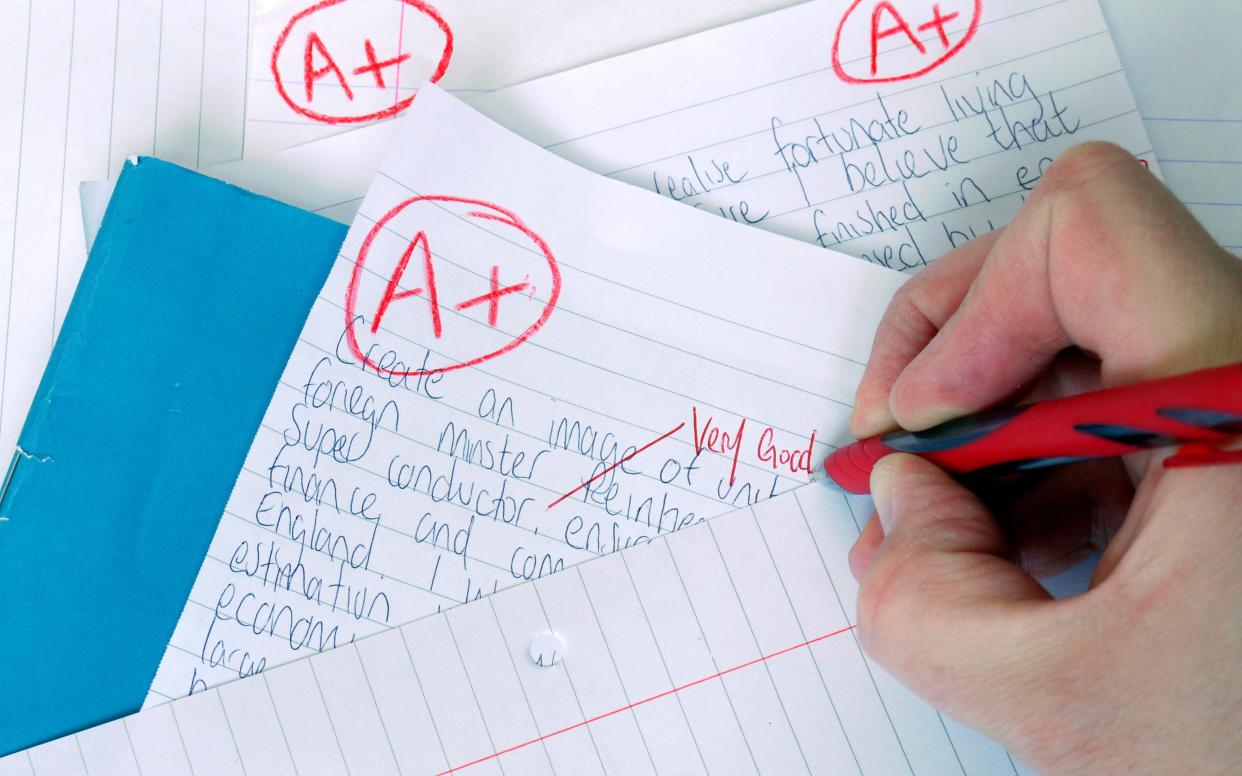School bans teachers from marking in attempt to boost children's confidence

The headmaster of a secondary school has banned teachers from marking because it risks damaging children’s confidence.
Gary Schlick, the head of Bedminster Down School in Bristol, said that issuing pupils with grades, scores and comments on their work may come across as negative, and does little to encourage children to improve.
Under the new regime, teachers are encouraged to replace traditional marking with a series of techniques which Mr Schlick believes will boost attainment.
One is “live marking”, whereby a teacher sits a child as they do their work and explains how to improve as they go along. This way, the teacher can “celebrate” the positive aspects of the pupil’s work with them in person.
Another method is “impact marking”, where students are quizzed in the classroom about whether they have understood new concepts.
“Much of the marking that teachers do is unnecessary, burdensome and does not help students progress,” Mr Schlick said.
“But sitting down with someone and talking through their work in detail – this way, children feel as though someone giving them more individual time, it boosts their confidence.
“Picking out things they have done really well and sharing it with the class – this is a more positive approach.”

Mr Schlick introduced the no marking policy after research by one of his teachers showed that marking homework makes little or no difference to students’ learning.
“We support some of our staff in doing Masters degrees in education and we are interested in evidence-based research for continuing improvement in the classroom,” he said.
“One of my assistant heads was doing a dissertation about effective feedback, looking at how the time teachers spend marking classwork and the impact it actually has on supporting progress of students in class.”

The feedback from students was the marking did not help them improve, while teachers felt the hours they spent marking was not having any impact.
“As a school we had moved away from putting grades on work some time ago – if you put a grade on a piece of work all they do is look at the grade,” he said.
“I am now telling teachers not to take books home to mark. They need to do feedback and assessment in the classroom.”
Bedminster Down School ran a pilot earlier this year, and has now rolled out the marking ban for all students in the school, which teaches boys and girls aged 11 to 16.
Schools have previously banned teachers from marking in red ink, on the basis that students may regard it as de-motivating and intimidating.

 Yahoo News
Yahoo News 
